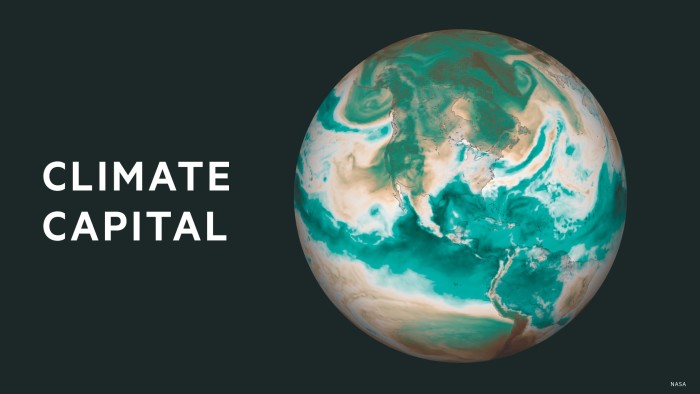Stay informed with free updates
Just sign up for Climate change myFT Digest — delivered straight to your inbox.
The author is a UN special envoy on climate and financial action and a former governor of the Bank of England
The brutal reality of climate physics is that the carbon budget to limit warming to 1.5C will run out within a decade if the world stays on its current course. That makes today’s emissions reductions so important because they create the time for the huge investments needed in clean technologies, while expanding the horizons to commercialize such innovations.
Voluntary carbon markets can play an important role in realizing the present value of carbon. At present, VCM is small – only $2bn annually is offered worldwide. This is because they have lacked integrity. There are legitimate questions about the credibility of the claims made for projects and buyers, the negative impact on local and indigenous communities and whether credit expansion can offset the full reduction in production.
Policy makers are now stepping up to address these issues. The US government took a groundbreaking step last month in announcing its principles for responsible participation in VCM. It uses the power of market solutions to build a clean economy that supports jobs, communities and growth. This is an important first step. To achieve the required scale, major economies must work together to build globally integrated markets, not to mention greatly expanding decarbonisation opportunities for emerging and developing countries that currently lack capital.
High-integrity VCMs can promote smoother and more efficient transitions. If they are well designed, they can accelerate the pace of total emissions reduction. They stimulate investment by accelerating the deployment of clean energy, improving the economics of new technologies and funding social change. They can play decisive roles in catalyzing the massive capital needed to transition from coal to clean generation in Asia and accelerate nature-based solutions everywhere.
But none of this will be possible unless these markets are built on solid foundations, with the right principles. Authorities must set standards for end-to-end integrity – of supply, demand and market. Social justice must also ensure that benefits flow to local communities.
Integrity of supply ensures that projects deliver credible emissions reductions that would not otherwise occur. To achieve that goal, the carbon market is joining new supply-side standards established by the independent Integrity Council for the Voluntary Carbon Market to ensure credit developers have strong governance and transparent reporting, and provide compensation if projects do not deliver. These standards need to be supported by third party monitoring, assurance and risk mitigation.
Equity of demand means that companies investing in carbon credits do not delay the decarbonisation of activities over which they have significant control. Only those who work against concrete goals and transition plans should get the right to invest in loans.
The Voluntary Carbon Markets Integrity Initiative has taken on the challenge of determining how companies can use credits for their net zero change, without compromising their incentives to reduce emissions. Policymakers must support and develop these standards, which are strengthened by an ecosystem of assurance of transition plans and credit utilization that is similar to auditors verifying the accuracy of financial accounts.
Market integrity is important to ensure equal treatment of participants and to develop VCM infrastructure to increase speed. This can be enhanced by innovations such as the Global Carbon Market Organisation, which was launched at COP27 and will help ensure markets have robust data transparency as well as governance, supporting standardized contracts, robust audit and verification processes and effective dispute resolution mechanisms.
The reward is great if we get this right. Carbon markets could generate hundreds of billions of dollars in annual cross-border capital flows to emerging markets, promote the end of high-emission assets and help curb new coal production in Asia. They can also create important funding for biodiversity and indigenous peoples, including reforestation of the Amazon. In addition to the inconvenience, there is growing evidence that they will help many companies commit to achieving net zero goals and decarbonise quickly.
Now is the time for the G20 to build on the US initiative, and grasp the nettle to create a globally integrated, high integrity carbon market. There is no more debate when the world is literally on fire.
Climate Capital

Where climate change meets business, markets and politics. Discover FT news here.
Curious about FT’s environmental commitments? Learn more about our science-based goals here
#Stop #debating #carbon #markets #start #building